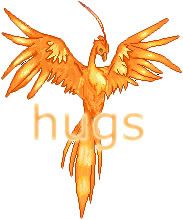|
|
| FAQ/Help |
| Calendar |
| Search |
|
#1
|
||||
|
||||
|
Hello all, and good morning! I've noticed a lot of people in here struggle with wanting to stop and not knowing how. I've posted here before about why I started SI and why I chose to stop and the long hard road I have a head of me, even after two years of sobriety: http://forums.psychcentral.com/showthread.php?t=93266
I've also posted about the most influential thing in getting me through the long haul: http://forums.psychcentral.com/showthread.php?t=94340 Now I'm here to post about some of the hard work that needs to be done to get yourself started. When I say hard work, I mean it. Some people may or may not be triggered, so I caution you from here on out - recovery is full of triggers because you are working through urges and feelings and reasons behind your behavior. You have to really want this to do it. If you feel triggered, stop, don't go on, use your support systems and your healthy coping strategies to get through it, give yourself some time, and when you are comfortable, try again. You ready? Here we go... Number one, and this is important, so pay attention: stop saying you are "(insert any number of verbs here)ing" yourself. You are not c***ing or b***ing. You are hurting yourself and that is final. Admit to yourself what you are really doing. People cut paper or cloth or any number of inanimate objects. People burn wood. You are a living human being and you are hurting yourself. This is the first part of stopping what SI truly is - devaluing yourself. Often times I've found, people just don't think they are worth it or they don't deserve better - this first step is a step in the right direction: away from those thoughts of worthlessness. After you understand this, its time to explore why you do it. First, you start by listing thoughts and feelings you have before during and after any form of self-injurious behavior (this includes extreme biting of hang nails or picking at scabs). This helps give you a better understanding of why you SI. This is a hard step to do, surprisingly. Most people would think, we live it, so we must understand why we do it better than any one. In my personal experience, this couldn't be farther from the truth. These few steps alone might take you a week to a month to accomplish, and you may be fighting urges as you explore the thoughts and feelings that go a long with it. You may also want to write down where you are when these thoughts and feelings are happening - our environment can trigger us without even knowing it. In my case, I always sat on the floor in my room. By not sitting there when I was having urges, it was easier to fight them. Do you see now why awareness is so important? I'm going to give y'all a list of books that have been beneficial for me - I'll list them in the order of preference. I found workbook style one's to help me more when I first started on my road of recovery. It may be different for you, but even buying one of these books is a step in the right direction - they'll have many similar tips I've given already I'm sure: The Scarred Soul: Understanding and Ending Self Inflicted Vliolence by Tracy Alderman - absolutely, the best book I could have ever bought, hands down. This is what I used to get through the first six months to a year of recovery. Not too long, lets you work at your own pace, has diagrams. Simple and sweet. Bodily Harm by Conterio, Lader, & Bloom - Somewhat of a workbook. I found the length to be intimidating. It was better for me as a tool later in recovery. Women Who Hurt Themselves: A Book Of Hope And Undertanding by Dusty Miller - More of a case study lay out. A book with lots of different stories of women who hurt themselves. Helps explore different reasons why people do it and lets you know that there are others out there like you. Cut by Patricia McCormick - A book about one girl's journey through SI. Good if you feel alone; however, it can be triggering. There are other good books out there - these are just the ones that I have read and can recommend. As always, good luck to those on the journey to recovery, and be safe for those who are not quite ready yet.          
|
dance59326, phoenix7, Sannah
|
|
#2
|
||||
|
||||
|
I havnt been here for a while because I seem to trigger at most things at the moment - but glad I looked in - thankyou for this

__________________
Its not how many times you fall down that counts  its how many times you get back up!   (Thanks to fenrir for my Picture  ) )When you have come to the edge of all light that you know and are about to drop off into the darkness of the unknown, Faith is knowing One of two things will happen: There will be something solid to stand on or you will be taught to fly. by Patrick Overton, author and poet |
beutifulxdreamr
|
|
#3
|
||||
|
||||
|
Quote:
Good luck to you. And look out for the posts with hearts  
|
phoenix7
|
| Reply |
|
|